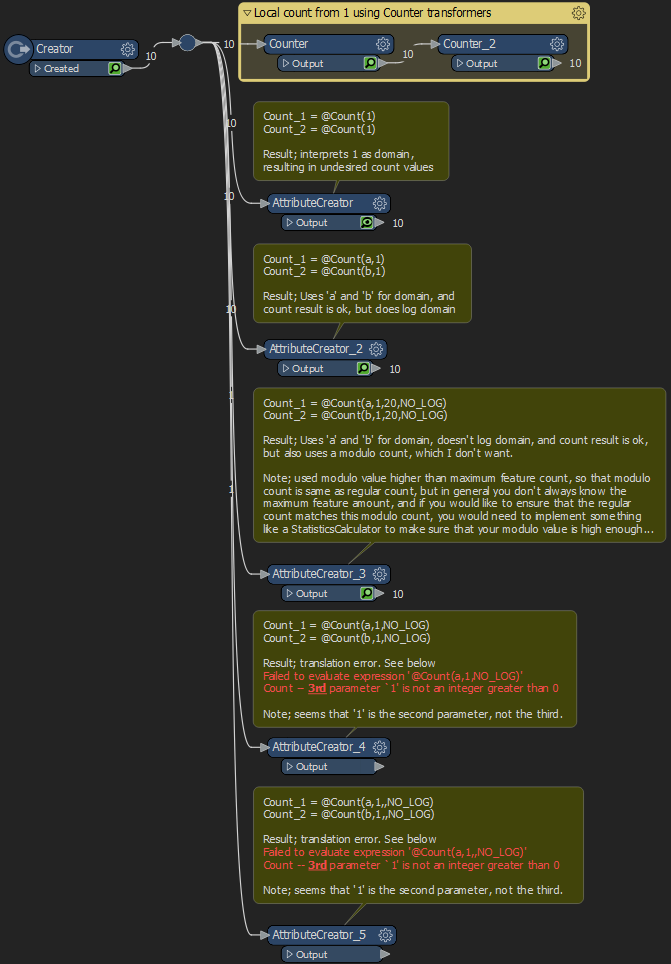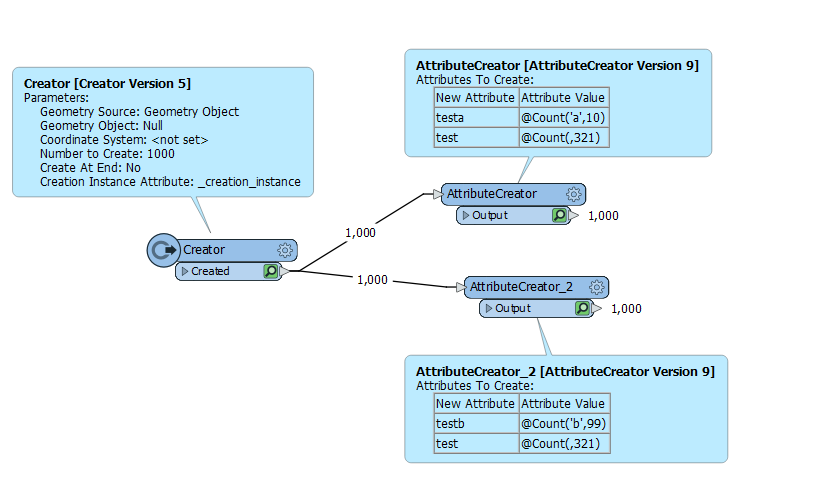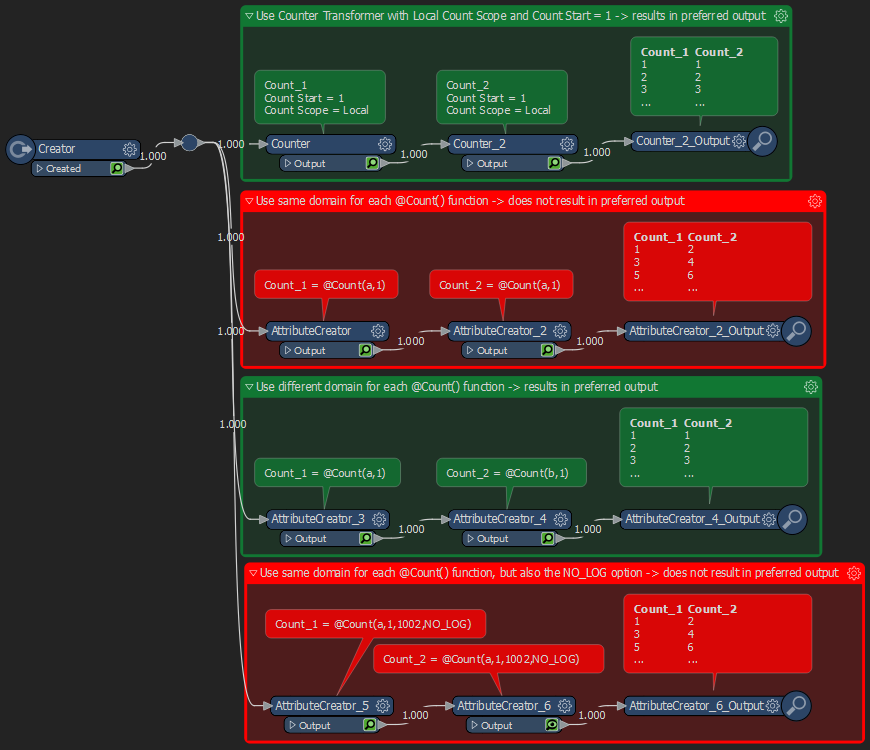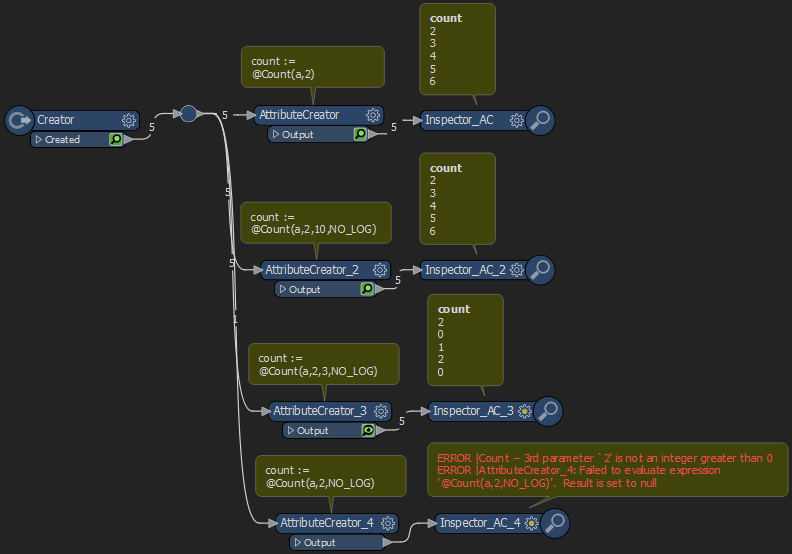If I use a Counter Transformer in my workspace, I often find myself using a 'Local' Count Scope, and also I prefer to start counting at 1 (instead of at 0).
Also, I would prefer to use the count functionality through Count() FME Feature Function(s) as opposed to using Counter Transformers, as this makes my workspace a bit more compact.
Unfortunately, I haven't been able to combine both of these goals. In particular, I haven't been able to use the 'Count()' FME Feature Function in combination with a Local Count Scope and a Count Start of 1. See below screenshot and the attached workspace (FME 2021.2.2.0 b21806, Counter Version 3)).
 I had a look at the FME Feature Function documentation page, and I thought that the NO_LOG option could be similar to the Local Count Scope.
I had a look at the FME Feature Function documentation page, and I thought that the NO_LOG option could be similar to the Local Count Scope.
If I look at the indicated Syntax of the Count() function, i.e.
@Count([<domain>[,<startVal>[,<modulo>]]][,NO_LOG]),
I'm tempted to believe that it should be possible to use the use both the 'startVal'='1' and also the NO_LOG option (probably also requiring a dummy domain value), without using the modulo option, but as indicated I haven't been able to make it work.
Also I noticed that when using any of the configured Count() FME Feature functions, at the end of the Translation log there is a portion on the`Count' Domain Summary, which indicates the amount of @Count invocations per (Global) domain, and in case of the 'NO_LOG' option it simply states 'Unlogged domains'.
I also see something similar when using the Counter transformer with a Global Count Scope (then there is a `CountFactory' Domain Summary), but when using the Counter transformer with a Local Count Scope there is no such Count Domain Summary in the log. So maybe the Counter transformer (with the Local Count Scope) uses a different setup/implementation than the Count() FME Feature function?














